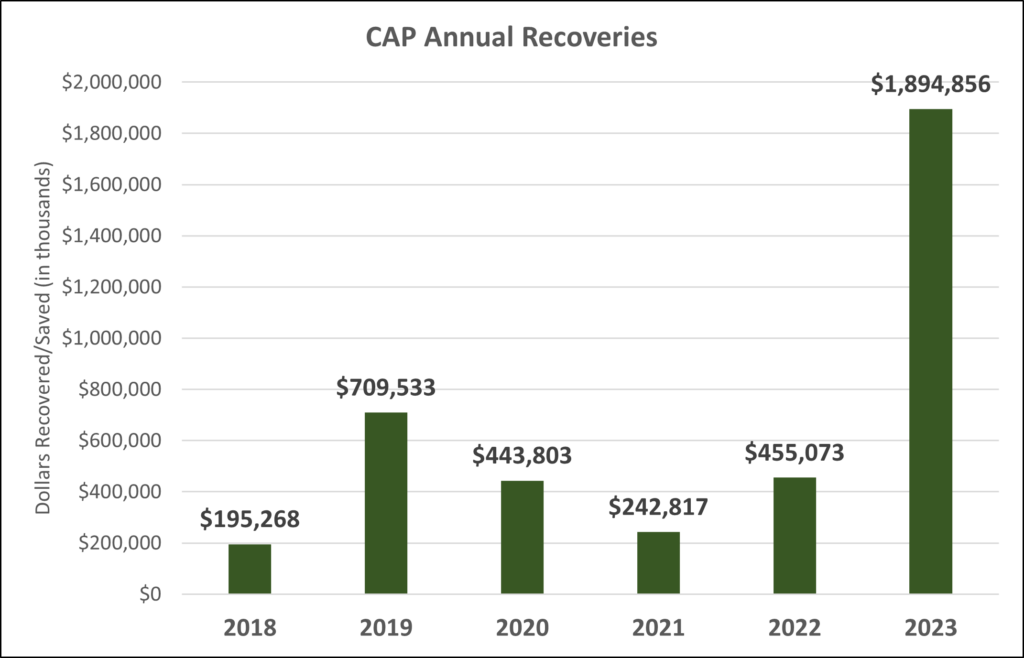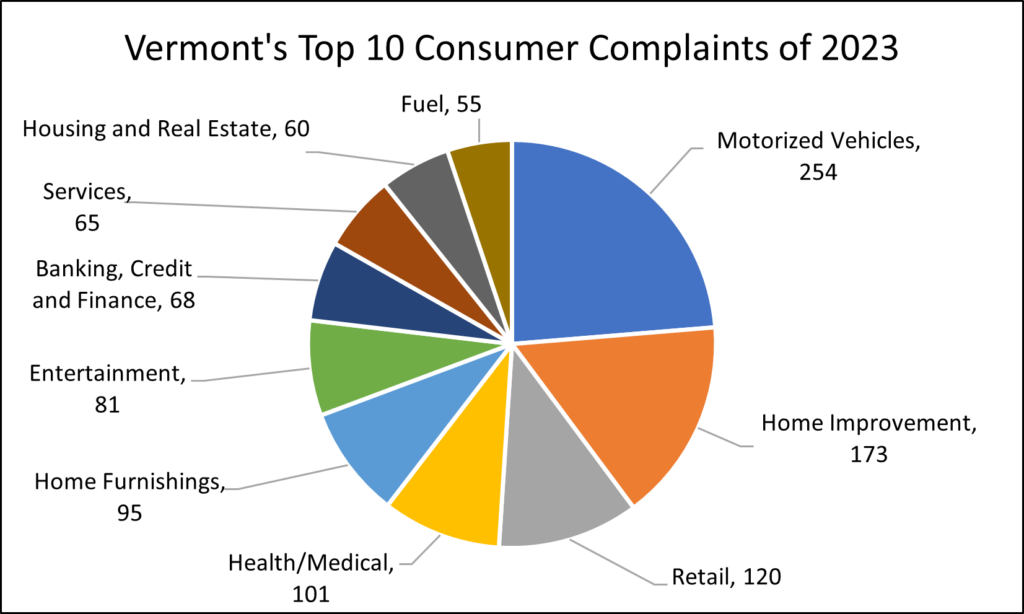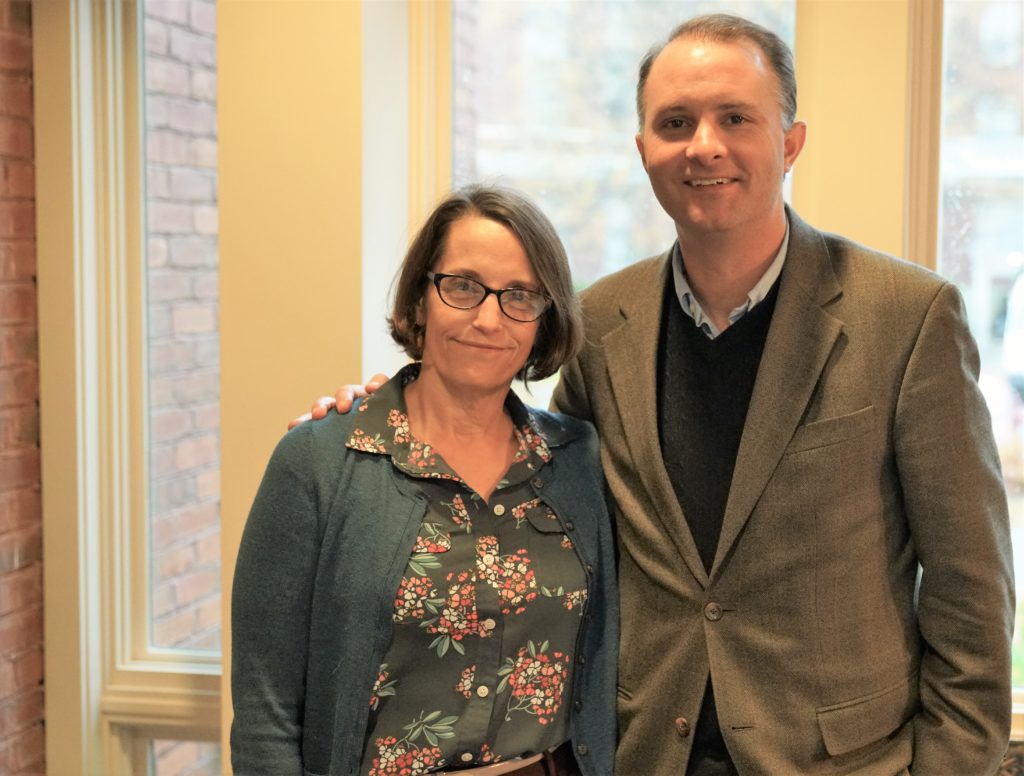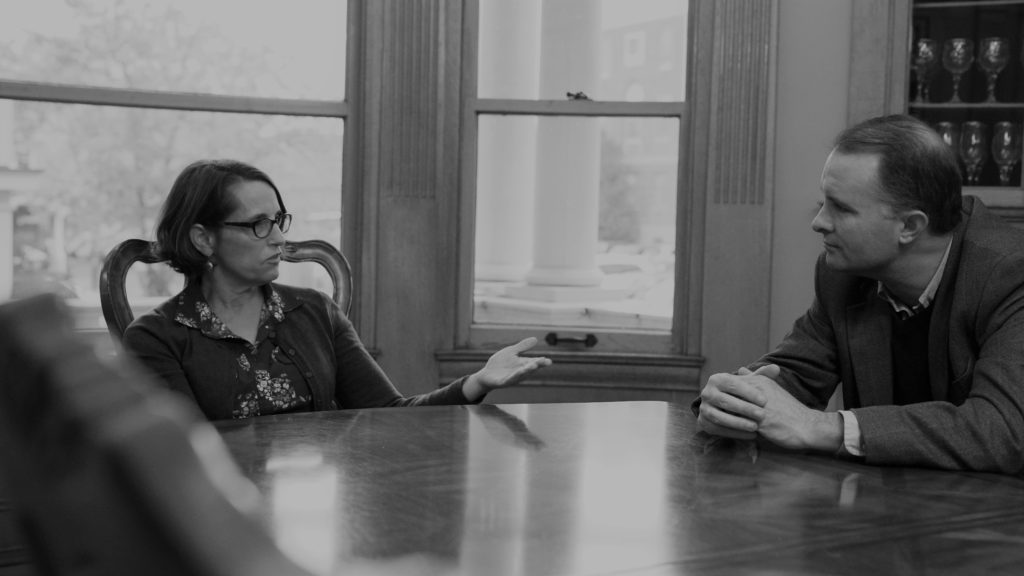Office Saves and Recovers More Than $1.89 million for Vermont Consumers
In recognition of National Consumer Protection Week, Attorney General Charity Clark announced the top 10 consumer complaints received by her office’s Consumer Assistance Program (CAP) in 2023. Claiming the list’s top spots are consumer complaints involving vehicles, home improvement, and retail, which collectively represent 43 percent of all complaints filed in 2023. Attorney General Clark also today released CAP’s 2023 Annual Report in which the program details its record-high recoveries and savings for Vermont consumers, totaling more than $1.89 million.

“Vermonters should know that they have rights as consumers. If you have a complaint to make, the Consumer Assistance Program is here to help,” said Attorney General Clark. “Every day, CAP helps consumers and businesses reach mutually beneficial resolutions without having to go to court. I am both proud of and inspired by their service.”
CAP is a 42-year-old program based at the University of Vermont in partnership with the Attorney General’s Office. The program’s primary goal is to address consumer problems in Vermont, which it does through its mediation service, outreach, and education. Staff, with the help of service-learning students, manage informal inquiries, provide referrals to resources, and engage in mediation of consumer complaints. In 2023, the program responded to 8,200 contacts, including reports of scams, and provided extensive mediation services on 1,251 consumer complaints.
While the top 10 consumer complaints of 2023 remained largely the same as those of 2022, there was a noticeable difference in fuel disputes reported last year. Fuel complaints slid down to the number 10 spot from number four in 2022. In 2023, CAP responded to 71 inquiries from fuel providers and consumers about the application of the “Propane Rule” – a consumer protection rule enforced by the Attorney General’s Office. The reduction in written complaints can be attributed to efficiencies implemented by CAP in 2023, which allowed staff to resolve complaints involving fuel more quickly and in real time thus removing the need for letter mediation. This improvement reduced the number of submitted complaints overall to 58 compared to 2022’s 120. A total of $34,813 was recovered in this area, resolving complaints about propane refund and tank removal delays, and nine consumers were able to have their heating services restored due to CAP’s intervention.

This year, like last, the top complaints reported to CAP were auto and home improvement complaints. CAP has made great strides in addressing the issue of home improvement by hiring a home improvement specialist in July of 2023. In the first six months on the job, the home improvement specialist recovered or saved Vermont homeowners more than $400,000.
More businesses are utilizing CAP’s mediation service as well. In Vermont, businesses can be considered consumers too under the Consumer Protection Act. Complaints filed by businesses increased from 53 in 2022 to 77 in 2023 with a 45 percent increase occurring between 2022 and 2023.
Vermonters experiencing consumer problems should contact the Consumer Assistance Program for help. The program is a useful resource for resolution and complaints filed help to identify problem trends in consumer areas. The CAP data is reviewed by the Vermont Legislature when considering consumer protection laws, for enforcement by the Attorney General’s Office, and for consumer education and outreach. Reach CAP by calling 1-800-649-2424 or online at ago.vermont.gov/cap.
A chart and table containing the Top 10 Complaints of 2023 is available here.
Learn about the Top 10 Consumer Complaints and CAP’s Annual Report on Across the Fence:


